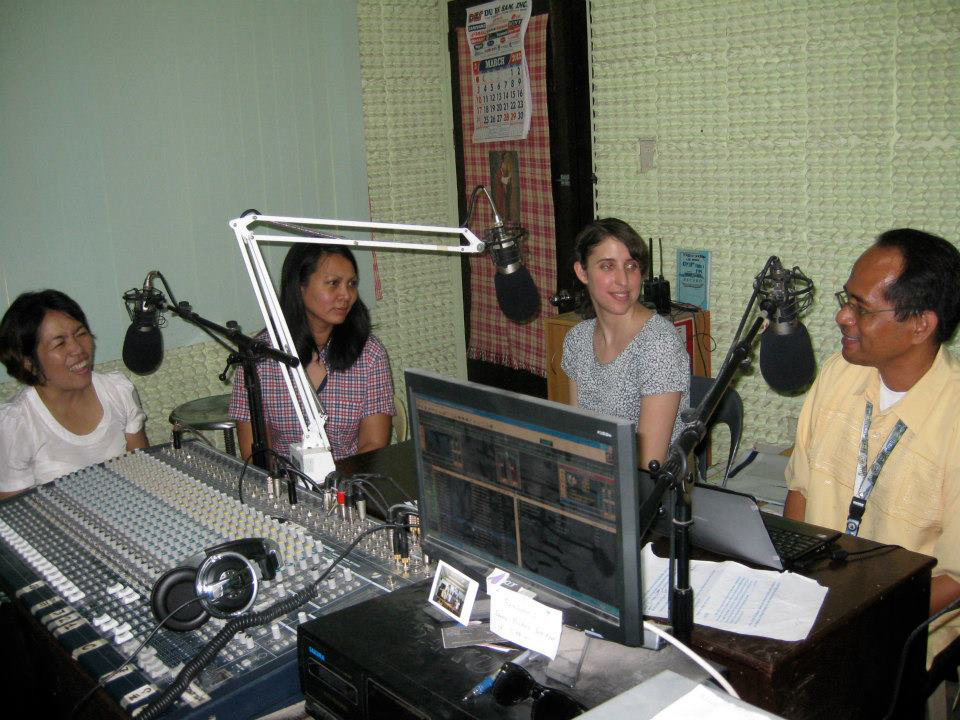Read The Jagna Story with Bahrat Koirala here.
 The recent typhoon and earthquake in the Philippines and in Jagna created a new and vital role for JCR in the disaster preparation and recovery. When power was restored, JCR came on the air with continuous programming that used texts from various parts of the island, both to request information and to supply it. We are now working with our local partners and interested possible funders to create backup power for the radio station so that it can go on the air immediately after disasters. Jagna will then use this as a model to be replicated at other stations in the Philippines and perhaps Nepal.
The recent typhoon and earthquake in the Philippines and in Jagna created a new and vital role for JCR in the disaster preparation and recovery. When power was restored, JCR came on the air with continuous programming that used texts from various parts of the island, both to request information and to supply it. We are now working with our local partners and interested possible funders to create backup power for the radio station so that it can go on the air immediately after disasters. Jagna will then use this as a model to be replicated at other stations in the Philippines and perhaps Nepal.
The texting, which is a critical part of Jagna’s disaster programming, is a great example of the creativity that comes from empowered communities. The 40-member media council, responsible for station administration and management, decided to commit assets to develop social media capabilities, although only 7% of the Jagna population has access to the Internet. What they knew, which we did not, was that an important future role of community radio is to combine the power of social media and radio to the benefit of both. Jagna uses social media to stream their local dialect programs throughout the world to overseas workers from the entire island of Bohol and to communicate with other stations. The station receives 300-400 texts a day, many of them to live programs. After hearing a presentation about Jagna Community Radio at a UN Conference, a Professor had the following quote: “Jagna Radio is using social media to promote the practice of democracy, rather than to protest its absence.”
The option of live texting has allowed Jagna to explore a wide range of programming options that have gotten interest both within Jagna and at UN presentations. Existing programs on agriculture and health now regularly integrate live texting into their broadcasts. JCR is exploring the possibility of creating the following programs that would use texting as an essential tool:
1. Take Your Medicine contest – This would involve a competition to produce the best short musical pieces to promote taking medicine, nutritional health, and health in general. The winning jingles would be played on the air and combined with testimonials from local residents.
2. Mother to Mother – This program would involve a live broadcast from different local areas within Jagna where a panel of 2 new mothers, 2 experienced mothers, and a pregnant mother would answer questions from a live audience and texts.
3. Dental Health – This program is currently on the air and there is a proposal to integrate radio programming with a new Jagna-wide push to create both new dental services and an awareness of healthy dental behavior.
4. Overseas Workers – The station Equitable Communities and the Nepal Media Council has a proposal for joint development of programs that would educate individuals in the Philippines and Nepal about the advantages and disadvantage of working in different countries. The programs would highlight skills that were most rewarded in each foreign country, as well as skills that overseas workers could develop to help them obtain employment when they returned to their native land. Alternatives to working overseas would be explored and well as helping to facilitate communication between families and workers overseas.
